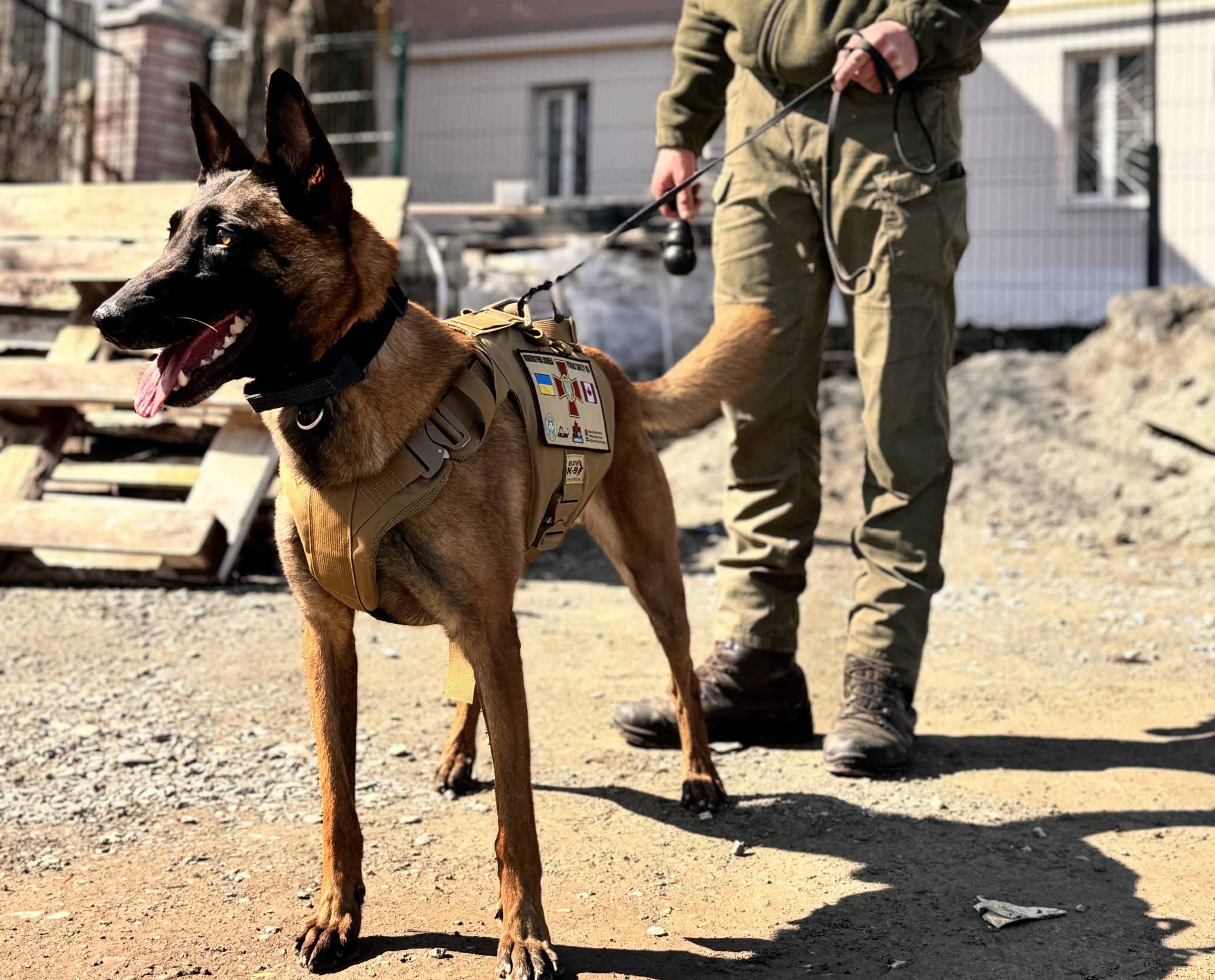
Torch — a 4-year-old Belgian Malinois has ‘big paws to fill’ at his new job in Ukraine.
“Torch is actually going to a unit that is doing explosives detection for equipment that is coming in and out of the front line areas. So he’s going to be checking any vehicles that are returning from the front line, or vehicles going to the front line just to ensure that any explosive materials aren’t being brought that aren’t supposed to be going in the vehicles,” said Matt Lapointe, co-owner of Alberta K9.
Alberta K9 donated Torch to the Ukrainian Military, he arrived in March — after an initial setback — when the Ukrainian handler he was meant to protect, died. A casualty of the ongoing Russian invasion.
Matt Lapointe and Kelsey Boettcher, co-owners of Alberta K9, were there to fine-tune his training with his new handler.
“Torch and his new handler hit it off extremely well. Right off the bat they kind of started developing a bond by like day two,” explained Lapointe. “His handler has never had a dog with that level of intensity and so that was something that was new for his handler, but his handler is just one of these people that’s just an absolute natural at handling detection dog and and he did very very well with him.
“We were going out to different locations doing live hides, so we’re actually training with grenades and rocket-propelled grenades, going out to different locations, hiding them, and having him go in and find them with Torch. I think he was quite impressed with Torch’s ability.”
Although they had just returned home to Alberta, the pair are going back to Ukraine in May to help develop detection canine training so Torch and other working dogs in the country can maximize their potential.
“They kind of lacked some of the equipment and training aids that we use here in Canada so that’s something we identified while we were there, so we’re going to work with Firefighter Aid Ukraine and their partners to fund that to get some equipment over so that they can maximize K9 Torch’s potential and they can do the proper maintenance training they need to do,” said Lapointe.
“I’m excited to go back and kind of see his progress. They’re doing some of their patrol training with him. He already is patrol trained, but he’s patrol trained in kind of our methods and our ways. They’re going to do some of their training how they train for patrol training in the different tasks that they need him to complete as far as being able to go patrol for public safety stuff. So it’ll be exciting to see what they’ve what they’ve taught him, the tricks they taught him.”
RELATED: Alberta K9 headed to Ukraine
Though it was emotional leaving Torch behind, Lapointe says it was easy to know they made the right decision.
“It was hard for me to hand him off over there. I thought it was going to be a little more emotional than it was, but I think having seen how well they look after their working dogs over there made it easier for me. And seeing how he and his new handler developed such a good bond in the short time we were there, that made it so much easier,” said Lapointe.
“We were absolutely blown away with the amount of care that they put into their animals there. They actually have laws there that their military working dogs are actually treated as soldiers, they have the same kind of rights as soldiers so they’re very very well taken care of.”
The need for more working dogs in Ukraine is great. From contraband detection canines to cadaver dogs. Alberta K9 is hoping to train and send more dogs over to the war-torn country in the future.
“They have a couple of different needs. Their state border guard service has a need for contraband detection canines, so dogs at the border to check for firearms being brought in or out of the country, and explosives. They’re having an issue with contraband tobacco at some of their border crossings right now. They have a tremendous need at their region’s border crossings for a detection canine for contraband so that is our goal, is to get them a contraband detection dog later this year,” explained Lapointe.
“The other need that they identified was a need for cadaver detection dogs. So they do have two search dogs in that region, but they’re trying to find live people that are missing. So basically tracking and trailing dogs. They have a need for cadaver dogs because their units are starting to get deployed to other communities where attacks have happened and buildings have been brought down so they need assistance with cadavor dogs to find bodies in those buildings.”
Lapointe added, “They do have a need for demining dogs, so that’s something else we’re looking at doing. Generally with the demining dogs we would try to train a smaller breed dog, so we actually have some Cocker Spaniel dogs at our facility right now that we’re going to see if they are suitable for that. Obviously, you want a smaller dog because it takes 40 to 60 pounds to set off an anti-personnel mine, so you want a dog that is 20 pounds that isn’t going to be at risk of setting off mines.”